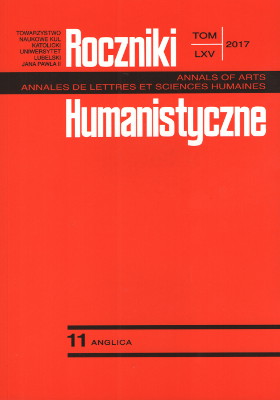Modernity and Utopia in Bruno Latour’s We Have Never Been Modern and Gabriel Josipovici’s What Ever Happened to Modernism
Modernity and Utopia in Bruno Latour’s We Have Never Been Modern and Gabriel Josipovici’s What Ever Happened to Modernism
Author(s): Magdalena SawaSubject(s): Language and Literature Studies, Studies of Literature, Other Language Literature
Published by: Towarzystwo Naukowe KUL & Katolicki Uniwersytet Lubelski Jana Pawła II
Keywords: modernity; Modernism; utopia; Utopia; Thomas More; Bruno Latour; Gabriel Josipovici
Summary/Abstract: This article seeks to explore the relation between utopia and modernity on the basis of Thomas More’s Utopia (1516) as well as two seminal contemporary studies: Bruno Latour’s We Have Never Been Modern (1992) and Gabriel Josipovici’s What Ever Happened to Modernism? (2010). The ambiguous nature of the modern prototype of utopia which displays both the eutopian and the dystopian (self-critical) impulse seems reflected in the nature of modernity. With auto-criticism inscribed in the constitution of both utopia and modernity, the leading desires of the modern period—for a greater emancipation and domination—prove to be its greatest burden both in the socio-political sphere as well as in art and literature.
Journal: Roczniki Humanistyczne
- Issue Year: 65/2017
- Issue No: 11
- Page Range: 161-175
- Page Count: 15
- Language: English

